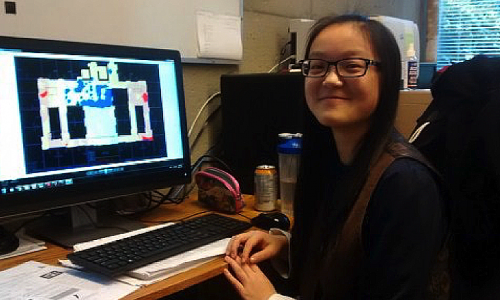
An informational interview is one of the best ways to develop a connection with someone in your desired industry, ask questions regarding suitable careers, and receive some tips on how to advance in your career. It is a great opportunity to learn more about positions, companies, industries, work environments, and career journeys. Consider connecting with a company or industry you are interested in learning more about, follow up with someone you briefly met at a networking event, or ask your friends and family if they have any contacts they wish to share with you. Reach out through e-mail, phone, or LinkedIn and communicate your intention with the meeting.
Keep in mind that these industry professionals are busy, so work around their schedule to arrange a 15-20 minute meeting. In-person interviews are preferred, but if the professional can only talk on the phone or Skype; or through e-mail, be thankful that he or she is making the effort to find time for you. Here are three helpful tips for your informational interview:
Behave Like You Would for a Job Interview
Although informational interviews are more conversational and laid-back than a job interview, it is important to still maintain professionalism because this affects your first impression. This means that you are to arrive 10-15 minutes early for an in-person meeting, dressed in business attire. Upon the professional’s arrival, shake hands and thank them for their time. During the informational interview, give the individual your undivided attention, maintain eye contact, and be aware of your posture. Even though you would behave like you would for a job interview, do not come with the intention of getting a job. Your interviewee will interpret the informational interview as being insincere and he or she will feel misled. Be genuine about your interest in wanting to learn more about the industry. Treat it more like a learning opportunity that will help you practice and give you confidence for job interviews.
Come Prepared
Prior to the meeting, do research on the person, his or her position, and the company. At the actual meeting, begin by stating your purpose in conducting the informational interview. Practice your elevator pitch so that you can concisely talk about your background and experience. Lastly, bring a pen and paper to take notes during the interview, and even prepare questions that you would like to ask (in order of priority). When asking your questions, avoid it being simply a question and answer session. Try to make it conversational, free-flowing, and natural. Don’t stress about sticking to your script and questions, but instead be flexible with what the professional would like to share.
Reflect
Ask yourself: What did you learn? What do you want to learn more about? How was the informational interview? Would you ask different questions next time or would you do anything differently? Once you have taken these into consideration, be sure to write the industry professional a thank you note within 24 hours after your meeting. A hand-written note or card adds a nice touch, but an e-mail is the most common and the quickest form. Discuss your biggest takeaway from the interview and how it resonates with you or inform them about how you will apply their advice or information to your career.
If you make connections through informational interviews, be sure to keep in contact with them every few months through an e-mail or LinkedIn.














